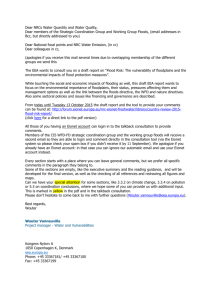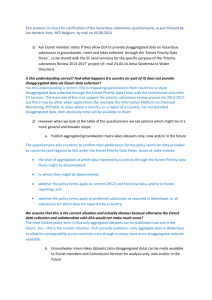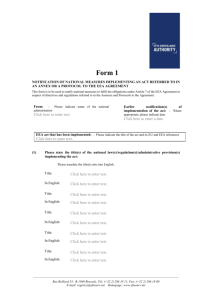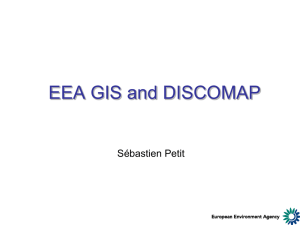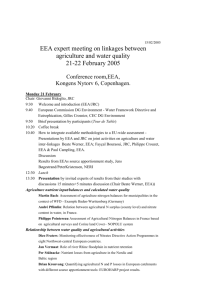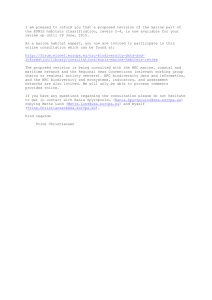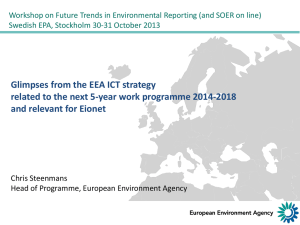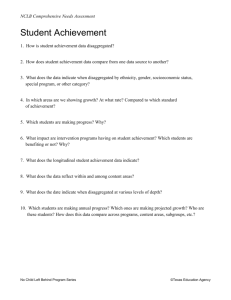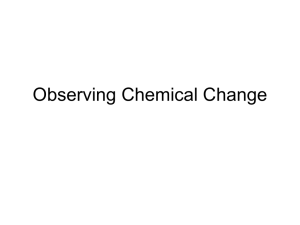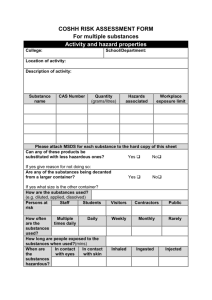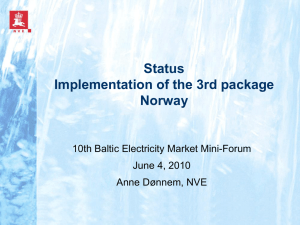Cover_hazardous substances water
advertisement
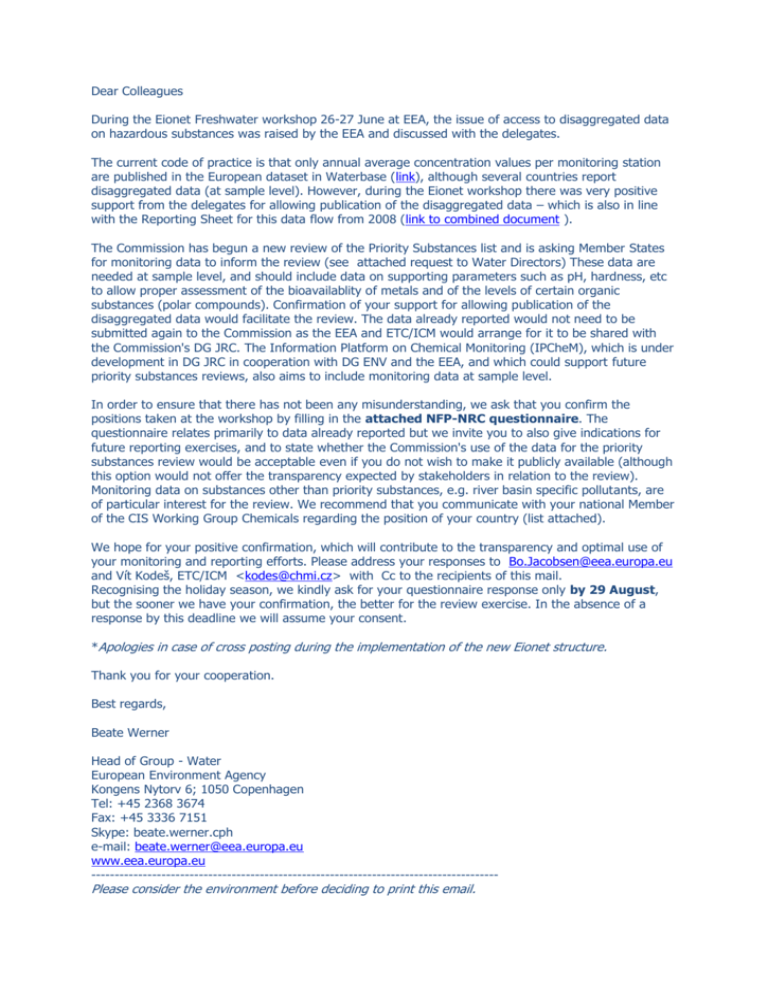
Dear Colleagues During the Eionet Freshwater workshop 26-27 June at EEA, the issue of access to disaggregated data on hazardous substances was raised by the EEA and discussed with the delegates. The current code of practice is that only annual average concentration values per monitoring station are published in the European dataset in Waterbase (link), although several countries report disaggregated data (at sample level). However, during the Eionet workshop there was very positive support from the delegates for allowing publication of the disaggregated data – which is also in line with the Reporting Sheet for this data flow from 2008 (link to combined document ). The Commission has begun a new review of the Priority Substances list and is asking Member States for monitoring data to inform the review (see attached request to Water Directors) These data are needed at sample level, and should include data on supporting parameters such as pH, hardness, etc to allow proper assessment of the bioavailablity of metals and of the levels of certain organic substances (polar compounds). Confirmation of your support for allowing publication of the disaggregated data would facilitate the review. The data already reported would not need to be submitted again to the Commission as the EEA and ETC/ICM would arrange for it to be shared with the Commission's DG JRC. The Information Platform on Chemical Monitoring (IPCheM), which is under development in DG JRC in cooperation with DG ENV and the EEA, and which could support future priority substances reviews, also aims to include monitoring data at sample level. In order to ensure that there has not been any misunderstanding, we ask that you confirm the positions taken at the workshop by filling in the attached NFP-NRC questionnaire. The questionnaire relates primarily to data already reported but we invite you to also give indications for future reporting exercises, and to state whether the Commission's use of the data for the priority substances review would be acceptable even if you do not wish to make it publicly available (although this option would not offer the transparency expected by stakeholders in relation to the review). Monitoring data on substances other than priority substances, e.g. river basin specific pollutants, are of particular interest for the review. We recommend that you communicate with your national Member of the CIS Working Group Chemicals regarding the position of your country (list attached). We hope for your positive confirmation, which will contribute to the transparency and optimal use of your monitoring and reporting efforts. Please address your responses to Bo.Jacobsen@eea.europa.eu and Vít Kodeš, ETC/ICM <kodes@chmi.cz> with Cc to the recipients of this mail. Recognising the holiday season, we kindly ask for your questionnaire response only by 29 August, but the sooner we have your confirmation, the better for the review exercise. In the absence of a response by this deadline we will assume your consent. *Apologies in case of cross posting during the implementation of the new Eionet structure. Thank you for your cooperation. Best regards, Beate Werner Head of Group - Water European Environment Agency Kongens Nytorv 6; 1050 Copenhagen Tel: +45 2368 3674 Fax: +45 3336 7151 Skype: beate.werner.cph e-mail: beate.werner@eea.europa.eu www.eea.europa.eu --------------------------------------------------------------------------------------- Please consider the environment before deciding to print this email.
